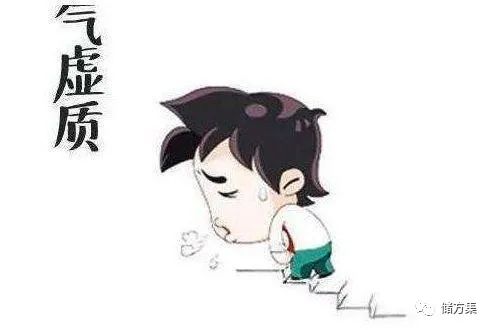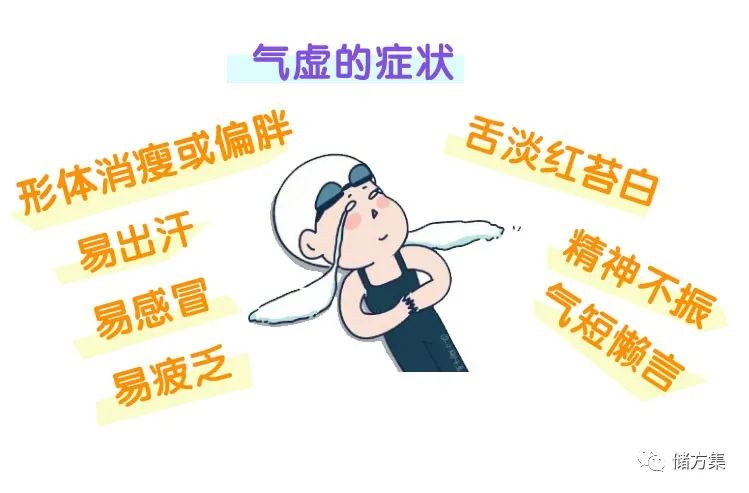 Click the blue text to follow us
Click the blue text to follow us
The body is the capital of our revolution, and we must pay attention to our health. However, sometimes problems arise. Many people are familiar with Qi deficiency. So, what is Qi deficiency? What causes Qi deficiency? How should it be regulated? Let’s take a look together.

 If you have three or more of the following symptoms, you may have a Qi deficiency constitution.
If you have three or more of the following symptoms, you may have a Qi deficiency constitution.
1. Frequently feeling fatigued;
2. Shortness of breath and reluctance to speak;
3. Prone to colds;
4. Preferring quiet environments;
5. Sweating more than usual after activity;
6. Pale complexion, dizziness, and fatigue;
7. Reduced appetite and loose stools;
8. Frequent urination at night;
9. Women may experience heavy menstrual flow with pale color.

In daily life, many people may experience Qi deficiency. So, what do you know about this condition?
 What causes Qi deficiency?
What causes Qi deficiency?
Genetic Factors
Some cases of Qi deficiency are due to genetic inheritance. Pregnant women who experience malnutrition during pregnancy may lead to insufficient nutrition for the fetus.
Excessive Mental Strain
When a person overuses their mind and becomes overly fatigued, it can also lead to Qi deficiency. This is a common situation that everyone should be aware of.
Excessive Physical Labor
People who frequently engage in heavy physical labor often experience Qi deficiency. In such cases, proper care and regulation are necessary.
History of Serious Illness
After recovering from a serious illness, the vital energy is greatly depleted.
Dietary Habits
Consuming cold, raw, and excessively rich foods, along with a lack of exercise, can contribute to Qi deficiency.
Long-term Dieting
Long-term dieting can lead to insufficient nutrient intake, resulting in Qi deficiency.
Emotional Distress
Frequent unhappiness, especially during meals, can easily lead to Qi stagnation.
Frequent Medication Use
As the body ages, organ functions decline, making one more susceptible to Qi deficiency. However, frequent use of certain Chinese patent medicines or hormones can exacerbate Qi deficiency.

Qi deficiency can easily lead to a loss of vitality in our daily work and study, making everything feel like a struggle.
 So, how should Qi deficiency be regulated?
So, how should Qi deficiency be regulated?
1. Take Yu Ping Feng San (Jade Windscreen Powder). This is a health-promoting formula that effectively tonifies Qi and is very suitable for those with Qi deficiency. If these patients also frequently catch colds and sweat profusely, this medicine can be used.
2. Moxibustion. Moxibustion at the Qihai (CV6) point can replenish kidney Qi. While performing moxibustion, consistently massage the Qihai (CV6) and Zusanli (ST36) points for good results. It is recommended not to exceed half an hour for moxibustion sessions.
3. Eat foods that tonify Qi and strengthen the spleen. Patients can consume dates, longan, and yellow soybeans, which are effective for tonifying Qi and nourishing the spleen. Long-term adherence can improve Qi deficiency. If symptoms are severe, medicinal soups such as Ginseng and Old Hen with Pork Stomach Soup can be chosen. Avoid raw and cold foods, such as radishes.
4. Maintain regular physical exercise. Qi deficiency can lead to significant weakness and low immunity, often resulting in fatigue. Therefore, these patients must exercise regularly to improve their constitution and regulate Qi and blood. However, avoid intense physical activities, as the body may not tolerate them.
(Source: Internet)
Prescription Collection Scan to FollowHospital Interconnection – Professional and Convenient
Scan to FollowHospital Interconnection – Professional and Convenient

